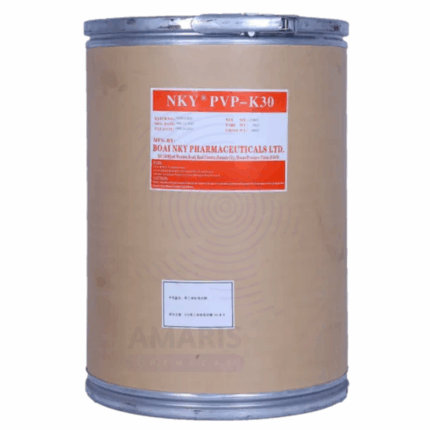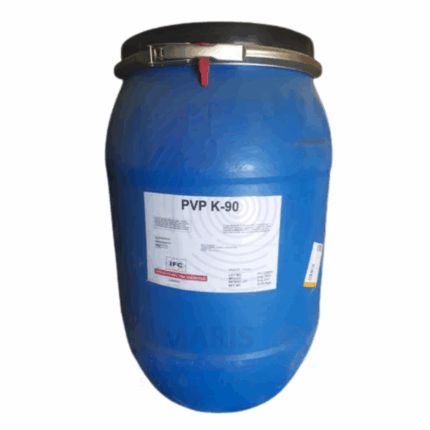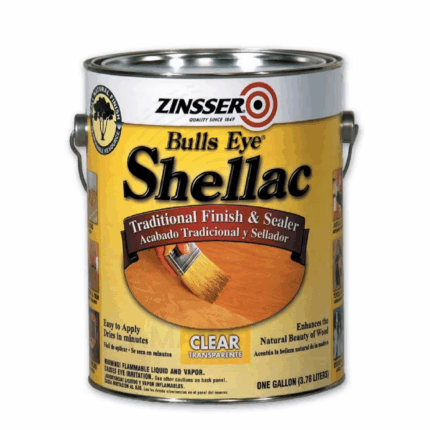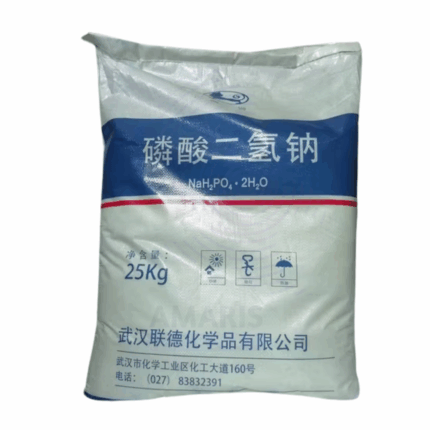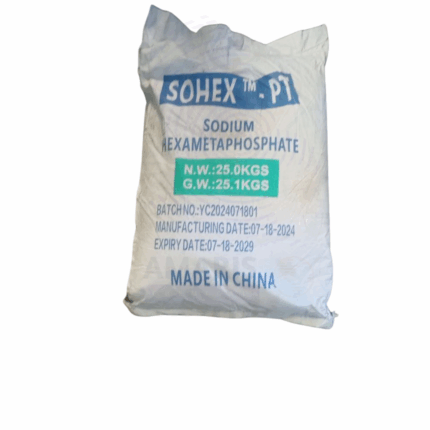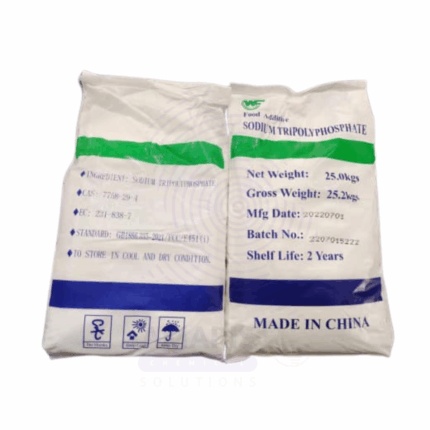
Protease Baking enzymes
Protease Baking Enzymes are specialized enzymes that catalyze the breakdown of proteins into peptides and amino acids. In baking, these enzymes improve dough handling, texture, and volume by modifying gluten structure and enhancing gas retention. They help produce softer crumb, better crust, and increased shelf life of baked goods. Protease enzymes are essential for consistent quality and efficiency in commercial baking operations.
Pullulan
Pullulan is a natural polysaccharide polymer produced by the fermentation of starch by the fungus Aureobasidium pullulans. It is a water-soluble, tasteless, and odorless biopolymer widely used in the food, pharmaceutical, and cosmetic industries due to its excellent film-forming, adhesive, and oxygen barrier properties. Pullulan is biodegradable, non-toxic, and approved for use in various applications requiring edible and biodegradable films.
PVP K 30 USP
PVP K 30 USP (Polyvinylpyrrolidone K-30) is a water-soluble polymer widely used in pharmaceutical and cosmetic formulations. It serves as a binder, stabilizer, and film-forming agent, known for its excellent adhesive properties and compatibility with a wide range of ingredients. PVP K 30 USP is characterized by its medium molecular weight, making it ideal for tablet binding, enhancing solubility of poorly soluble drugs, and providing viscosity control in liquid formulations. This grade complies with USP standards ensuring suitability for pharmaceutical use.
PVP K 90 USP
PVP K 90 USP (Polyvinylpyrrolidone K-90) is a high molecular weight water-soluble polymer widely used in pharmaceutical, cosmetic, and industrial applications. Known for its excellent film-forming, adhesive, and thickening properties, PVP K 90 is particularly valued where higher viscosity and stronger binding are required. This grade meets USP standards, ensuring purity and suitability for pharmaceutical use, especially in sustained-release formulations, suspensions, and topical products.
Semi Refined Paraffin Wax
Product Description
Semi Refined Paraffin Wax is a purified hydrocarbon wax derived from petroleum refining. It is characterized by its semi-refined nature, meaning it retains some impurities compared to fully refined waxes, but still meets industrial quality standards. This wax is solid at room temperature with a moderate melting point and is widely used in various industries due to its excellent moisture barrier properties, plasticity, and chemical inertness. It serves as a key raw material in candles, packaging, cosmetics, and coating formulations.
Semi Refined Paraffin Wax
Semi Refined Paraffin Wax is a purified hydrocarbon wax derived from petroleum refining. It is characterized by its semi-refined nature, meaning it retains some impurities compared to fully refined waxes, but still meets industrial quality standards. This wax is solid at room temperature with a moderate melting point and is widely used in various industries due to its excellent moisture barrier properties, plasticity, and chemical inertness. It serves as a key raw material in candles, packaging, cosmetics, and coating formulations.
Shellac
Shellac is a natural resin secreted by the lac insect, primarily found in South Asia. It is processed into flakes or powder form and dissolved in alcohol to create a versatile film-forming agent. Shellac provides excellent adhesion, gloss, and moisture resistance, making it widely used as a wood finish, food glaze, and pharmaceutical coating. It is valued for its natural origin, biodegradability, and safe use in food and cosmetic applications.
Silicon Dioxide
Silicon Dioxide (SiO₂), commonly known as silica, is a naturally occurring inorganic compound found abundantly in the Earth’s crust. In its refined, powdered form, it is used as an anti-caking agent, filler, absorbent, and thickener across a wide range of industries. It is odorless, tasteless, chemically inert, and stable under normal conditions. Packaged in 10kg units, silicon dioxide is highly versatile and widely accepted for use in food, pharmaceutical, cosmetic, and industrial applications.
Sodium Aliginate
Sodium Alginate is a natural polysaccharide extracted from brown seaweed. It appears as a white to yellowish powder that is odorless and tasteless. It is highly soluble in cold water, forming viscous solutions and gels. Sodium alginate is widely used in the food, pharmaceutical, textile, and cosmetic industries due to its excellent thickening, gelling, stabilizing, and film-forming properties. It acts as a natural hydrocolloid and is valued for its biocompatibility and biodegradability.
Sodium Dihydrogen Phosphate
Sodium Dihydrogen Phosphate (NaH₂PO₄) is a white crystalline powder or granule, highly soluble in water. It is widely used as a buffering agent, emulsifier, and pH adjuster in various industrial, food, pharmaceutical, and laboratory applications. It acts as a source of phosphate ions and helps maintain the stability and consistency of formulations. This chemical is commonly utilized in food processing, water treatment, detergents, and as a reagent in chemical synthesis.
Sodium Tripolyphosphate
Sodium Tripolyphosphate (STPP), chemical formula Na₅P₃O₁₀, is a white, granular or powdery inorganic compound widely used as a sequestrant, dispersant, and detergent builder. This 25kg packaged product is highly soluble in water, forming alkaline solutions that effectively soften water by chelating calcium and magnesium ions. Its excellent emulsifying and dispersing properties make it an essential ingredient in detergents, water treatment, food processing, and industrial cleaning applications.
Soya Lecithin
Soya Lecithin is a natural phospholipid-rich substance extracted from soybean oil. It is a brownish-yellow viscous liquid or semi-solid with excellent emulsifying, stabilizing, and dispersing properties. This 25kg packaged product is widely used as an additive in food, pharmaceutical, cosmetic, and industrial applications to improve texture, shelf life, and product stability.
Stabilizer
Stabilizers are additives used to maintain the physical and chemical properties of materials, preventing degradation caused by heat, light, oxygen, or mechanical stress. This product typically includes compounds like calcium stearate, magnesium stearate, or complex blends tailored for polymers, foods, cosmetics, or pharmaceuticals. They improve durability, shelf life, and performance of various formulations.
Stearic Acid
Stearic Acid (Triple Pressed) is a high-purity, saturated fatty acid derived primarily from vegetable fats. The triple pressing process enhances its purity, resulting in a fine, waxy solid with excellent consistency and reduced impurities. It is widely used as an emulsifier, thickener, and surfactant in various industries, providing stability and texture to products ranging from cosmetics to rubber and plastics.
Stearic Acid Cosmetic Acid
Stearic Acid Cosmetic Grade is a high-purity, saturated fatty acid specially refined for use in cosmetic and personal care products. It is a waxy, white solid known for its excellent emulsifying, thickening, and stabilizing properties. This grade ensures minimal impurities and is compatible with a wide range of formulations including creams, lotions, soaps, and deodorants, providing smooth texture and enhanced product stability.
Sunflower Butter
Sunflower Butter is a creamy spread made from roasted sunflower seeds, offering a nutritious and allergen-friendly alternative to traditional nut butters. It is rich in healthy fats, protein, vitamins, and minerals, making it a popular choice for health-conscious consumers. Sunflower Butter has a mild, slightly nutty flavor and smooth texture, suitable for direct consumption or incorporation into various food products.
Tween 20 (Polysorbate 20)
Tween 20, also known as Polysorbate 20, is a non-ionic surfactant and emulsifier derived from the esterification of sorbitan (from sorbitol) with fatty acids, followed by ethoxylation. It is a pale yellow to amber viscous liquid that is completely soluble in water, making it ideal for emulsifying oil-in-water systems. Tween 20 is widely used in cosmetics, pharmaceuticals, food, biotechnology, and industrial formulations due to its excellent emulsifying, dispersing, solubilizing, and stabilizing properties.
Tween 60 (Polysorbate 60)
Tween 60, or Polysorbate 60, is a non-ionic surfactant and emulsifier synthesized from sorbitan monostearate and ethylene oxide. It is part of the polysorbate family and is used to stabilize oil-in-water emulsions in food, pharmaceuticals, and personal care products. It appears as a yellowish, viscous liquid or waxy paste at room temperature. Known for its high Hydrophilic-Lipophilic Balance (HLB), Tween 60 is ideal for solubilizing fats, oils, and vitamins in aqueous solutions and enhancing product texture and shelf life.
Tween 80 (Polysorbate 80)
Tween 80, or Polysorbate 80, is a non-ionic surfactant and emulsifier derived from the ethoxylation of sorbitan monooleate. It is a pale yellow to amber viscous liquid with a mild odor and is completely soluble in water and many polar solvents. Tween 80 is widely used in food, pharmaceuticals, cosmetics, biotechnology, and industrial applications. Its high Hydrophilic-Lipophilic Balance (HLB ~15) makes it particularly effective in stabilizing oil-in-water emulsions and solubilizing lipophilic substances.
Xantham Gum
Xanthan Gum is a high-molecular-weight polysaccharide produced by fermentation of glucose or sucrose by the bacterium Xanthomonas campestris. It is widely used as a thickening, stabilizing, and emulsifying agent in various industries due to its excellent viscosity properties, even at low concentrations. Xanthan Gum imparts improved texture, consistency, and shelf life to finished products, making it indispensable in food, pharmaceutical, cosmetic, and industrial formulations.


 Preservatives(food)
Preservatives(food) Flavor Enhancers
Flavor Enhancers Acidulants
Acidulants Sweeteners
Sweeteners Antioxidants
Antioxidants Colorants(food)
Colorants(food) Nutraceutical Ingredients (food)
Nutraceutical Ingredients (food) Nutrient Supplements
Nutrient Supplements Emulsifiers
Emulsifiers
 Collectors
Collectors Dust Suppressants
Dust Suppressants Explosives and Blasting Agents
Explosives and Blasting Agents Flocculants and Coagulants
Flocculants and Coagulants Frothers
Frothers Leaching Agents
Leaching Agents pH Modifiers
pH Modifiers Precious Metal Extraction Agents
Precious Metal Extraction Agents
 Antioxidants(plastic)
Antioxidants(plastic) Colorants (Pigments, Dyes)
Colorants (Pigments, Dyes) Fillers and Reinforcements
Fillers and Reinforcements Flame Retardants
Flame Retardants Monomers
Monomers Plasticizers
Plasticizers Polymerization Initiators
Polymerization Initiators Stabilizers (UV, Heat)
Stabilizers (UV, Heat)
 Antifoaming Agents
Antifoaming Agents Chelating Agents
Chelating Agents Coagulants and Flocculants
Coagulants and Flocculants Corrosion Inhibitors
Corrosion Inhibitors Disinfectants and Biocides
Disinfectants and Biocides Oxidizing Agents
Oxidizing Agents pH Adjusters
pH Adjusters Scale Inhibitors( water)
Scale Inhibitors( water)
 Antioxidants(cosmetic)
Antioxidants(cosmetic) Emollients
Emollients Fragrances and Essential Oils
Fragrances and Essential Oils Humectants
Humectants Preservatives
Preservatives Surfactants(cosmetic)
Surfactants(cosmetic) Thickeners
Thickeners UV Filters
UV Filters
 Fertilizers
Fertilizers Soil Conditioners
Soil Conditioners Plant Growth Regulators
Plant Growth Regulators Animal Feed Additives
Animal Feed Additives Biostimulants
Biostimulants Pesticides (Herbicides, Insecticides, Fungicides)
Pesticides (Herbicides, Insecticides, Fungicides)
 Active Pharmaceutical Ingredients (APIs)
Active Pharmaceutical Ingredients (APIs) Excipients
Excipients Solvents(pharmaceutical)
Solvents(pharmaceutical) Antibiotics
Antibiotics Antiseptics and Disinfectants
Antiseptics and Disinfectants Vaccine Adjuvants
Vaccine Adjuvants Nutraceutical Ingredients (pharmaceutical)
Nutraceutical Ingredients (pharmaceutical) Analgesics & Antipyretics
Analgesics & Antipyretics
 Analytical Reagents
Analytical Reagents Solvents(lab)
Solvents(lab) Chromatography Chemicals
Chromatography Chemicals Spectroscopy Reagents
Spectroscopy Reagents microbiology-and-cell-culture-reagents
microbiology-and-cell-culture-reagents Molecular Biology Reagents
Molecular Biology Reagents Biochemical Reagents
Biochemical Reagents Inorganic and Organic Standards
Inorganic and Organic Standards Laboratory Safety Chemicals
Laboratory Safety Chemicals Specialty Laboratory Chemicals(Special Laboratory Equipment)
Specialty Laboratory Chemicals(Special Laboratory Equipment)
 Demulsifiers
Demulsifiers Hydraulic Fracturing Fluids
Hydraulic Fracturing Fluids Scale Inhibitors(oil)
Scale Inhibitors(oil) Surfactants(oil)
Surfactants(oil) Drilling Fluids
Drilling Fluids
 Dyes and Pigments
Dyes and Pigments Bleaching Agents
Bleaching Agents Softening Agents
Softening Agents Finishing Agents
Finishing Agents Antistatic Agents
Antistatic Agents
 Admixtures
Admixtures Waterproofing Agents
Waterproofing Agents Sealants and Adhesives
Sealants and Adhesives Curing Compounds
Curing Compounds Concrete Repair Chemicals
Concrete Repair Chemicals Anti-Corrosion Coatings
Anti-Corrosion Coatings
 Surfactants(cleaning)
Surfactants(cleaning) Builders
Builders Enzymes
Enzymes Solvents (Cleaning)
Solvents (Cleaning) Fragrances
Fragrances
 Electronic Chemicals
Electronic Chemicals Catalysts
Catalysts Lubricants
Lubricants Photographic Chemicals
Photographic Chemicals Refrigerants
Refrigerants Automotive chemicals
Automotive chemicals Pyrotechnic Chemicals
Pyrotechnic Chemicals
 Biodegradable Surfactants
Biodegradable Surfactants Bio-based Solvents
Bio-based Solvents Renewable Polymers
Renewable Polymers Carbon Capture Chemicals
Carbon Capture Chemicals Wastewater Treatment Chemicals
Wastewater Treatment Chemicals
 Pigments
Pigments Solvents(paint)
Solvents(paint) Specialty Coatings
Specialty Coatings Binders/Resins
Binders/Resins Additives
Additives Driers
Driers Anti-Corrosion Agents
Anti-Corrosion Agents Functional Coatings
Functional Coatings Application-Specific Coatings
Application-Specific Coatings
 Fresh Herbs
Fresh Herbs Ground Spices
Ground Spices Whole Spices
Whole Spices Spice Blends
Spice Blends Dried Herbs
Dried Herbs
 Leavening Agents
Leavening Agents Dough Conditioners
Dough Conditioners Flour Treatments
Flour Treatments Fat Replacers
Fat Replacers Decoratives
Decoratives Preservatives(baking)
Preservatives(baking)
 Plasticizers & Softeners
Plasticizers & Softeners Reinforcing Agents
Reinforcing Agents Adhesion Promoters
Adhesion Promoters Vulcanizing Agents
Vulcanizing Agents Antidegradants
Antidegradants Blowing Agents
Blowing Agents Fillers & Extenders
Fillers & Extenders Accelerators & Retarders
Accelerators & Retarders


















